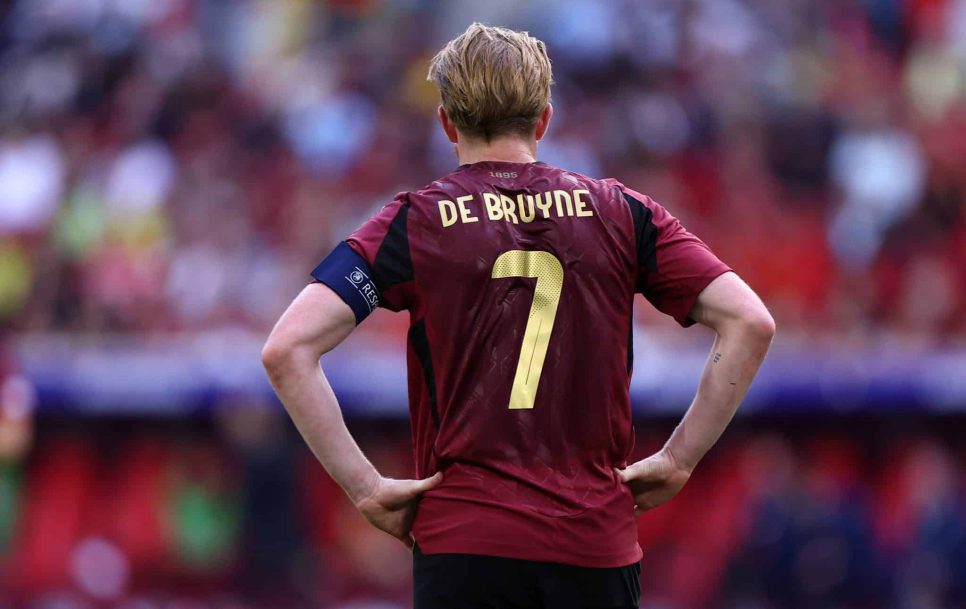Rebuilding Belgium: life after the golden generation
For nearly a decade, Belgium’s national football team was touted as a squad with the potential to make deep runs in major tournaments. Six years after their successful 2018 World Cup campaign, it has become clear that their golden generation’s era is over. While this realization may be somber, it carries a glimmer of positivity.
Belgium’s rise to the upper echelons of the international stage was far from accidental. Michel Sablon, the technical director of the Belgian Football Association, had a plan to elevate his country to the top or close to it. Despite recognizing that his ideas might sound radical, he persevered.
In September 2006, Sablon began crafting a plan that revolutionized Belgian football. It’s important to note that he didn’t invent the wheel but drew inspiration from visiting the best youth academies in France, the Netherlands, and Germany.
Once Sablon had his ideas put into a brochure, he introduced them to Belgian clubs and schools. For instance, he advocated using the 4-3-3 formation in youth football, mirroring the setup used by the senior national team.
Additionally, Sablon encouraged youth coaches to focus on player development rather than results. He also established a rule that once a player moved up to the next age group, they couldn’t drop back down, even briefly, regardless of their age.
Despite facing criticism from both the media and within the association, Belgium reaped the benefits of Sablon’s plan within a few years. Traditionally, the country’s U17 and U19 teams ranked in the third tier in the world rankings, but by 2009, they had reached the top ten. The success formula was simple: Belgium made their players better.
This improvement benefited not only the national teams but also the players. In 2008, only Vincent Kompany and Marouane Fellaini played in the Premier League. Six years later, 12 Belgians were earning their keep in the world’s richest and perhaps the best league.
A long drought
Sablon initiated changes in Belgian football because the senior national team was struggling. They only reached their first major tournament of the century at the 2014 World Cup, and the golden generation kept them among the favorites at least until the World Cup two years ago. Some believed they had a chance to perform well at this year’s Euros, but they played lifeless football and were eliminated in the Round of 16 by France.
At this year’s Euros, only five members of the golden generation were in the squad: center-back Jan Vertonghen, midfielders Axel Witsel and Kevin De Bruyne, winger Yannick Carrasco, and striker Romelu Lukaku.
Many other members of the golden generation have either retired (like Eden Hazard), are no longer at the required level for the national team (such as Dries Mertens), or are in conflict with someone (read: Thibaut Courtois). Notably, out of the five players who wore the Belgian jersey at this year’s Euros, only Vertonghen, De Bruyne, and Lukaku played significant roles – Witsel didn’t play a single second due to injury, and Carrasco alternated between the first eleven and the bench.
It’s fair to say that this championship marked the official end of the golden generation. Moreover, Vertonghen retired from international football after the Euros, and De Bruyne may follow suit, but he wants to rest, recover, and then decide whether to continue with the Red Devils. Lukaku’s retirement is also not out of the question, as there were rumors about it after the previous Euros and World Cup.
Despite an inglorious end, the golden generation took Belgium to heights it had never reached before. They topped FIFA’s world ranking, and the bronze medal at the 2018 World Cup is the country’s best result. The only achievement they couldn’t surpass was the second place at the 1980 Euros.
Light at the end of the tunnel
The end of an era also presents an opportunity for a fresh start. Belgium doesn’t have to rebuild its football from scratch, as several promising talents were part of the squad this year, from Manchester City’s 22-year-old winger Jérémy Doku to Atlético Madrid’s 19-year-old midfielder Arthur Vermeeren.
There is hope that just as Roberto Martinez, who largely guided the golden generation, became one with Belgium, the current head coach Domenico Tedesco will do the same. The highly regarded coach is only 38, and this year’s Euros was his first major tournament, providing him with a wealth of experience.
Although Tedesco’s continuation is not set in stone, despite his contract running until the 2026 World Cup, Belgian football experts believe he will not be dismissed. The football association will make a decision about the young coach in the coming weeks. The likelihood of him staying is increased by the fact that firing Tedesco would be very costly, and the association is not in a good financial position. The coach himself has expressed his desire to continue.
Perhaps more importantly, the end of the golden generation will relieve the heavy burden that has weighed on Belgium for years. While reaching major tournaments will still be expected, participating without being considered among the favorites might be a welcome change.
It is undoubtedly easier to perform as the underdog.







